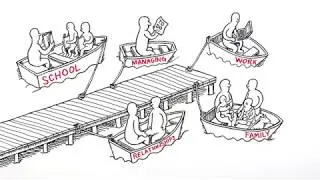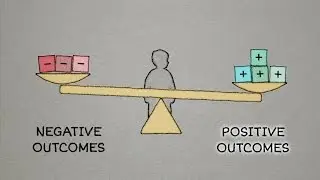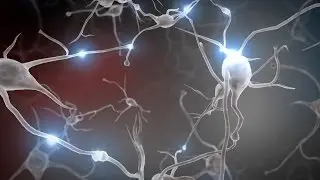1. Experiences Build Brain Architecture
на канале: Center on the Developing Child at Harvard University
The basic architecture of the brain is constructed through a process that begins early in life and continues into adulthood. Simpler circuits come first and more complex brain circuits build on them later. Genes provide the basic blueprint, but experiences influence how or whether genes are expressed. Together, they shape the quality of brain architecture and establish either a sturdy or a fragile foundation for all of the learning, health, and behavior that follow. Plasticity, or the ability for the brain to reorganize and adapt, is greatest in the first years of life and decreases with age.
This video is part one of a three-part series titled "Three Core Concepts in Early Development" from the Center and the National Scientific Council on the Developing Child. The series depicts how advances in neuroscience, molecular biology, and genomics now give us a much better understanding of how early experiences are built into our bodies and brains, for better or for worse. Healthy development in the early years provides the building blocks for educational achievement, economic productivity, responsible citizenship, lifelong health, strong communities, and successful parenting of the next generation.
Also from the "Three Core Concepts in Early Development" Series:
2. Serve & Return Interaction Shapes Brain Circuitry: • 2. Serve & Return Interaction Shapes ...
3. Toxic Stress Derails Healthy Development: • 3. Toxic Stress Derails Healthy Devel...
For more information, please visit: http://developingchild.harvard.edu/re...

![[PuppetConf 2014][Modules] Test Driven Development with Puppet - Gareth Rushgrove, Pupp...](https://images.videosashka.com/watch/Rk4DSuwA-Y4)





![Lonely Night - เป๊ก ผลิตโชค - [ piano cover by KruNatt ]](https://images.videosashka.com/watch/vskRiD9bC7Q)











